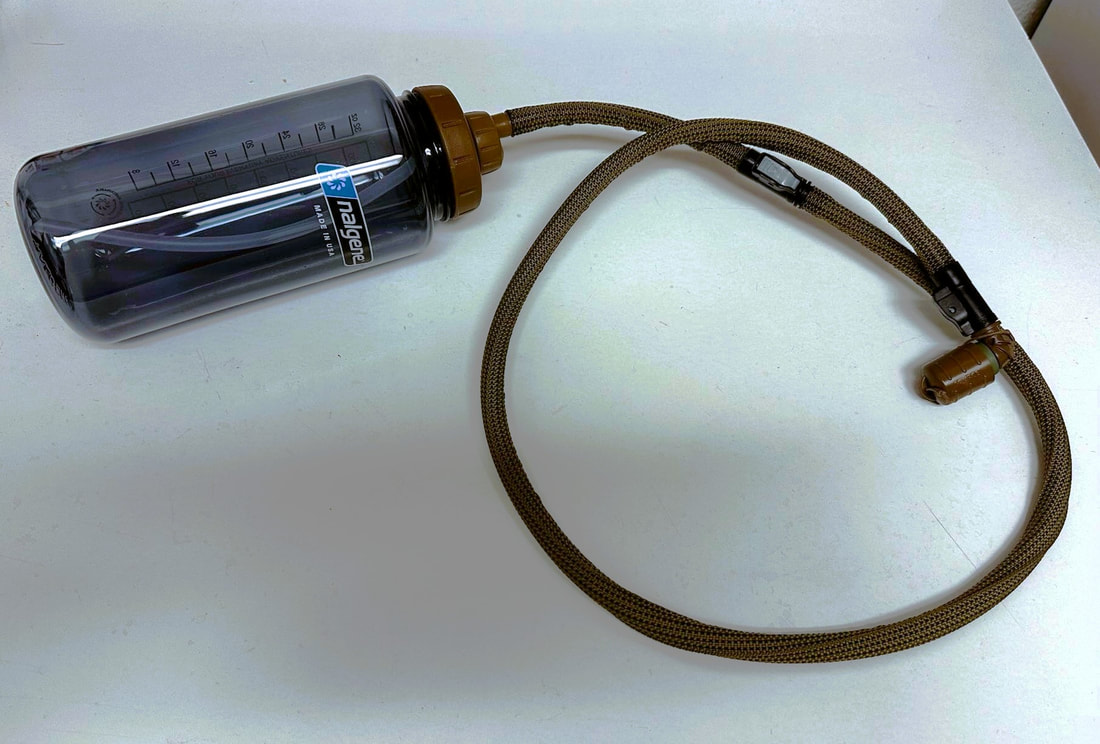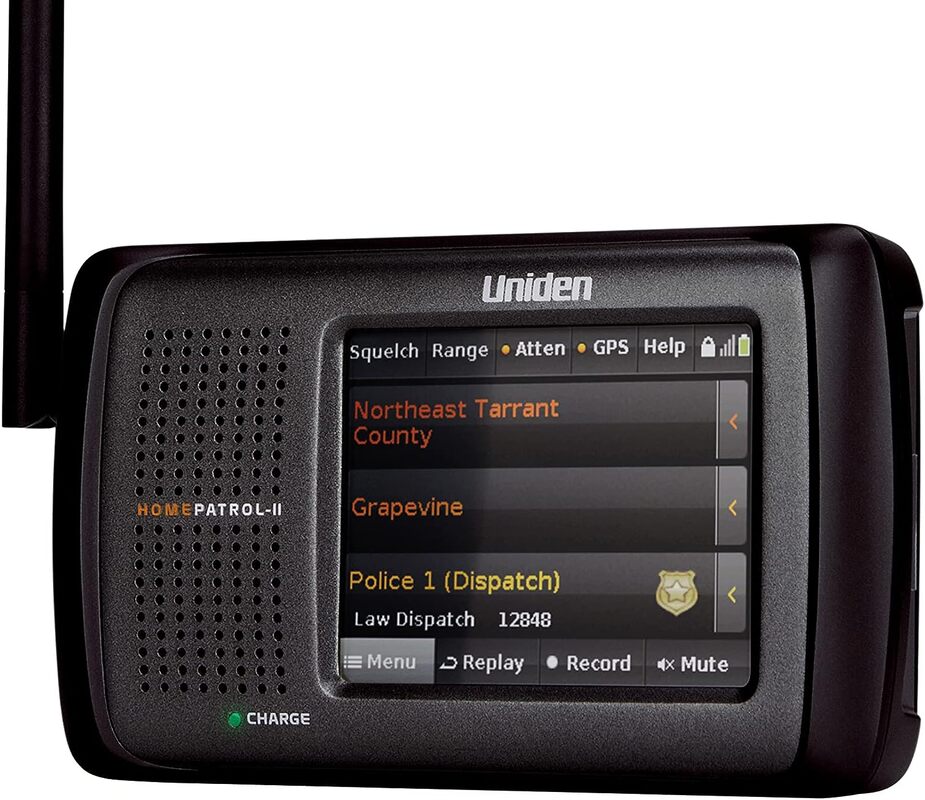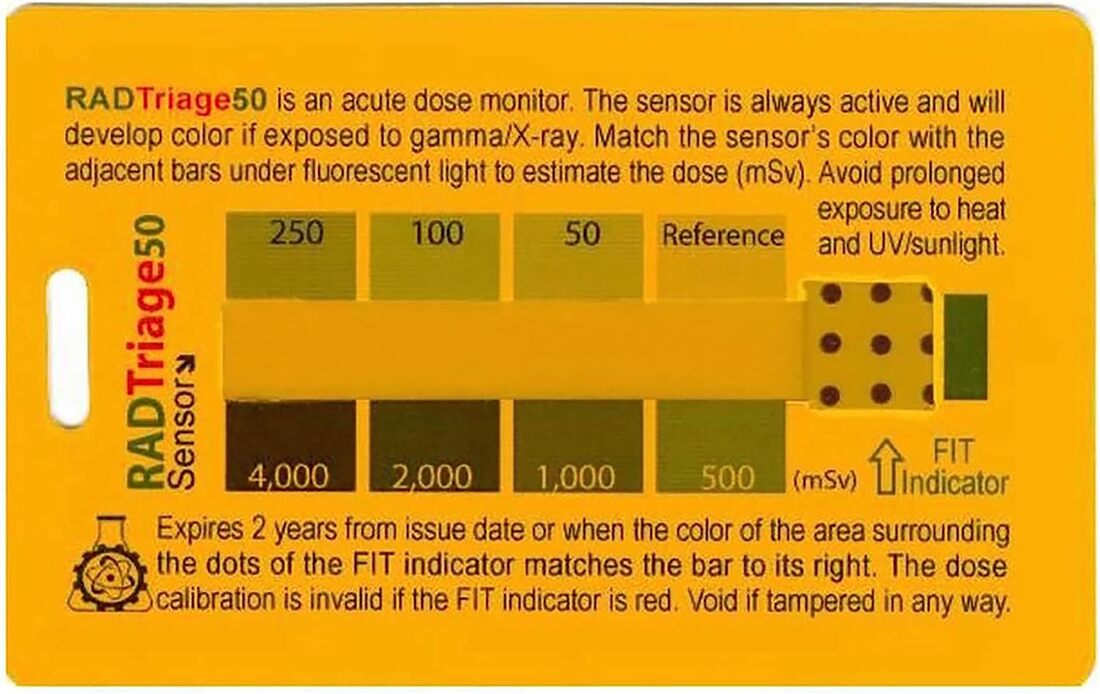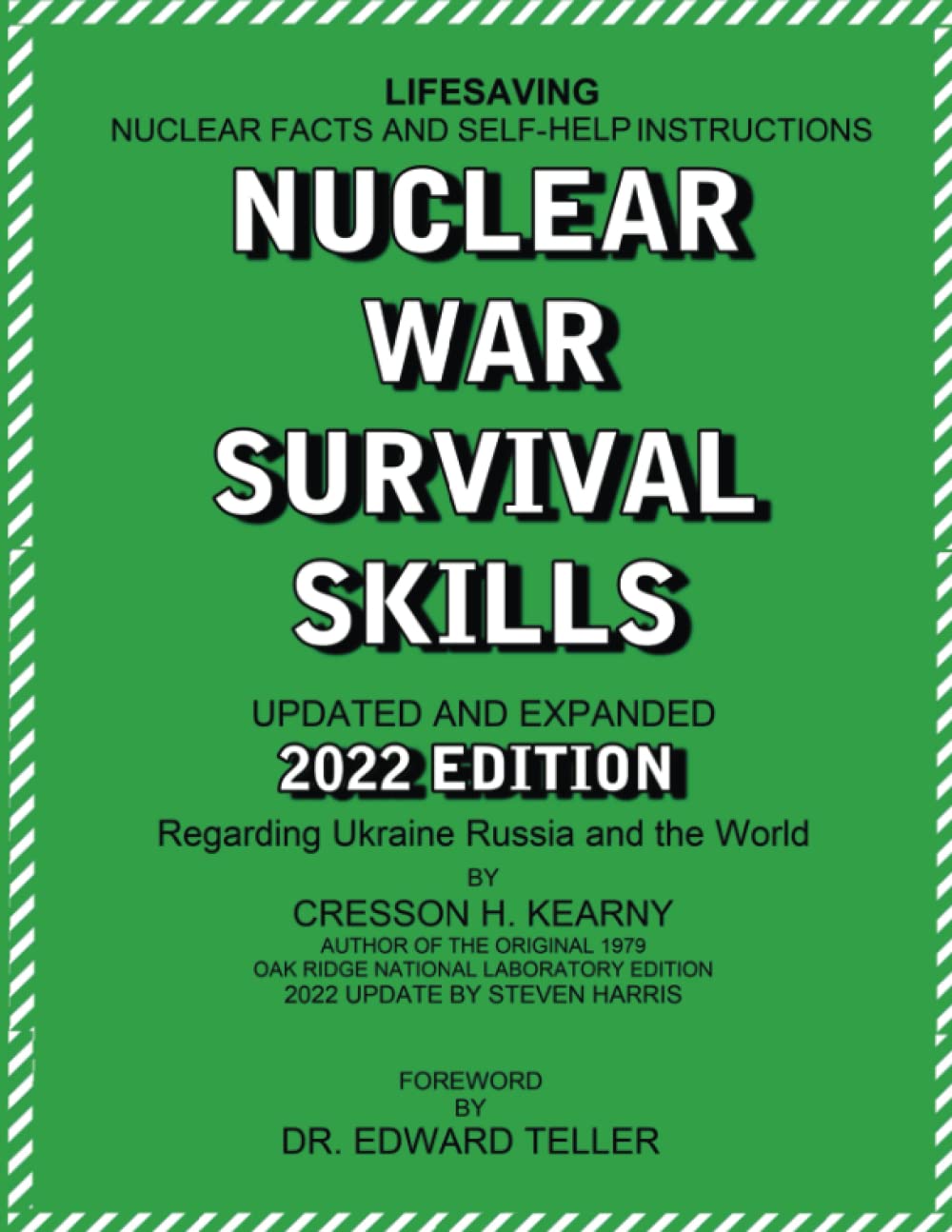|
If you have followed Forward Observer for a long time, you’ve heard founder Mike Shelby talk about intelligence and the “area study” a lot. You may have dismissed his consistent calls to the audience to increase one’s local situational awareness and his mantra “Do your area study.” I must admit that for an embarrassingly long time I didn’t understand what an “area study” is despite intuitively doing all the right things. For those of us who have lived our whole lives or for a very long time in one area, it is easy to assume that we know everything about our home regions. After all, we experience it day after day. The reality is the vast majority of people don’t have a highly-detailed knowledge of where they live. Rather, they feel that they comfortably understand the details and dynamics. Familiarity in this case has bred overconfidence. Overconfidence gets people killed. Intelligence being critical to survival is the central tenant of Shelby’s message and without it, and an area study, you stand a much greater chance of dying when SHTF. This is because you may have planned for the wrong threats. For example, in spring of 2020, how many people suddenly found themselves in the midst of looting because they lived proximate to a retail center? Without intelligence you are completely blind to the threat until it confronts you without warning. Most people may struggle with basic tasks like reading maps, researching natural and industrial hazards in their area, or keeping up with demographic and criminal trends. These individuals who refer to themselves as potential warlords in the event of SHTF may think of themselves as generals, but their mindset and approach is that of a private. A private wants stuff that can help him perform his mission better, but wars are not won through acquisitions of stuff; they are won through strategy. Strategy is developed through intelligence. The private is responsible only for following orders; a general is responsible for identifying and planning the mission. For an individual, there is not going to be a general or S-2 shop doing the work for you. What is an area study? An area study is zone reconnaissance; as more critical points or places of interest are identified, more detailed information collection becomes area reconnaissance. It is truly a “study,” not just a document. Ultimately, an area study goes beyond collection of data and becomes a thought exercise. What is an “area study”? In a grossly oversimplified nutshell:
Intelligence is information analyzed to answer questions. Without a baseline understanding of a problem, a threat, or an environment, there is an insufficient level of knowledge to even begin asking questions. In the context of history, I always explain my fascination with learning about the past (and the world) as turning on the lights in a dark building, revealing rooms and details that would have gone totally unnoticed in the darkness. An area study is about identifying and filling intelligence gaps—you don’t know what you don’t know. I made the mistake of thinking an area study was collating documents and information. It is, but rather than being just a file, it's recording what you are learning for offline use when you need a reference. If an area study was just writing down what you know about your home that may be useful when SHTF, it might rightly be regarded as just a gimmick. No, an area study is more of the process of learning than it is the final product. An anecdote This is where I have to add a personal apology: I blew off Mike because I failed to understand what he was getting at. If you are mistaking an area study as “just” a document, you aren’t alone. I literally wrote a section of a book describing “knowing where you live” without understanding that this actually was an area study in practice for like over a year. If you think that Shelby is overemphasizing the importance of intelligence your observation is not surprising, but it is incorrect. Much of the book is spent trying to convince the reader to conduct their study and explain why. It is easy to overlook the importance of intelligence. For most people, they are operating under a veil of benign ignorance. I will admit that for too long I simply didn’t understand what he was getting at, which may seem astounding coming from an author like me. Cops know their areas really well; it’s called beat familiarization and you get it out of books (binders in the briefing room if we’re talking analog) and firsthand. When relocating, many people look for “the good schools” and flood hazards. Generally, we do not perform a multi-hazard threat analysis that includes political and social factors, nor do we consider ordinal effects on the area due to a catastrophe (“ordinal effects”: second, third order, etc.). My advice in one of my books was to “know about where you live” and I described what I did naturally all my life out of simple curiosity. Most people do not spend hours pouring over maps or Google Earth. They do not look up demographic data or ethnic distribution in the racial dot maps (based on census data). Knowledge of crime patterns and gang behaviors are total unknowns to the average American. The general population’s understanding of their neighborhoods and regions are based almost entirely on experiential data; that which they live every day. One day Mike put some thing out on YouTube or something and it suddenly dawns on me what an “area study” is. It also dawned on me that in addition to being very dense, I don’t think like other people. What came naturally to me as basic curiosity or “fun” (I’m sure you have a different definition) is like pulling teeth to other people, hence Shelby’s aggressive exhortations. It blew me away to realize that this wasn’t something everybody did, which is why I thought Mike’s mantra was so unnecessary. It was a true light-bulb going off in my head moment; I am not like normal people. Normal people don’t play around on Google Earth, collect maps, or wonder what the demographic distribution of certain groups are in their place of residence. Normal kids don’t say “Gee, I’m bored. Let me thumb through the phone book.” That’s why it’s so imperative that you actually sit down and deliberately do this stuff. Part of the reason I was so oblivious was because I didn’t understand other people don’t have the same level of curiosity. Examining the psychology behind this tells us that even smart people are subject to cognitive blind spots. Most people know about where they live through direct experiential learning, that is, in their day-to-day lives. Very few people look at maps, satellite photos, or demographic data. They do not look at trends in crime. I’m sure it seems bizarre that a guy like me would fail to “get it” on why an area study is necessary or why it is imperative for a prepared citizen to do one. It’s almost laughable now that I did do area studies and think about the bigger picture but failed to connect what came naturally to me with what Shelby was talking about. It’s really embarrassing to admit because in hindsight it’s so obvious. Why you need to do an area study
In writing my post-apocalyptic novels, I have to consider more than just the inciting event itself. For instance, what challenges would real people in a similar situation, set in an alternate reality, face? In my case, I looked at the dominant power structures in my area which are: law enforcement, agricultural interests, and Mexican drug cartels. I had to wargame how these elements would react and interplay in order to develop a plot. It would be easy to mistake Mike’s constant exhortations as marketing his own products and services; it is not. When he harangues his audience to do their area study, he is begging them to critically evaluate their physical and social environment. Many of us assume that since we have lived in an area forever or a long time that we know all there is to know about it. Indeed you might, but there are reasons for conducting a formalized study and recording the results. First, an area study serves as a validation for our experiential knowledge against hard sources. Second, though it may feel like we are retreading the same ground, it is a valuable gap analysis process. Assuming you know everything can be a fatal mistake. Due diligence:
Third, it creates a permanent record to make this information permanent and accessible. Recording the information allows you to access things you may not recall immediately, preserve the results of your work for others, and have access to research materials offline. In my professional and personal education, I rarely relied upon note taking because if I couldn’t remember it for a test, how was I going to remember it in life? In real life, many instances have cheat sheets for complicated information which is what your recorded study becomes. I have had countless binders full of information that I read once or twice or referenced on the rarest of occasions. The point of collating this information is to serve as a quick reference and preserve it for others’ use. For instance, I can be a human encyclopedia about my AO but if I’m dead, my family or my partners can’t plug my brain into a USB port and run a file recovery program. The problems with the modern survivalist paradigm in Shelby’s view is that the average prepper does not understand the environment in which he lives and suffers from a critically small human network. Without gathering information to comprehend the nature and risk of various first, second, and third order threats survival planning can be done wrong. The consequences may range from the inconvenient to deadly. Furthermore to the second point, in a dramatically altered society, smaller human networks—individual relationships—will be vital for not only security, but commerce and social capitol. What Shelby is offering is, in his words, “second layer solutions” that increase survivability beyond the mere logistics of sustainment. This goes beyond just having backup in a fight or someone to barter with. Mutual cooperation reduces the ability for malign forces to exert control. Successful people get that way because they look for and exploit opportunities. Your weakness is a bad guy’s opportunity. If your plans are general in nature and you have no clear idea of who might be coming to get you, you are not prepared. Intelligence is planning for the guy down the street who constantly gets arrested getting out of jail, terrorizing the neighborhood, and one day becoming the capo for your local Mexican cartel. It’s not some general idea that people might try to steal your freeze dried food and having a vague idea of using your AR-15 to fight them off. You know what the reality is going to be for most people when SHTF? They will flock to whoever seems to have it together and either become slaves for safety or follow orders for survival/success. The strong man with a plan and the means to effect his plan will be the one who takes control. This is how bad guys like the mafia take over; they fill a power vacuum, offer safety, and vital services needed for survival. In some of my novels the battle for control centers around wells; water is life. Police struggle to maintain them as public resources and gangs want to control the wells so they can profit. European rivers and roads were controlled by bandit barons who extorted tolls on travelers, which harmed commerce, but absent a powerful central authority, they got away with it. Have you considered how bad actors may exploit resources in your area, including who these people might be, what those resources are, and how you can counter it? The book itself Army intelligence field manuals are very obtuse, and it is very difficult to apply the information in them to the civilian survivalist context. FM 2-0 and 34-3 made my brain hurt. Shelby parses the good information for you. He not only explains what information to look for, but why it is important. It is far more than a series of forms to fill out, though the book concludes with the outline for your own study. Some things I liked or noted: Book discusses basic concepts to intelligence analysis like the intelligence cycle. While many of us can do this process intuitively, it helps to understand the doctrinal aspects that can streamline and improve the efficiency and accuracy of the process. One problem Shelby discusses is the scope of the area study; a common problem he finds among some of his students is determining the size of the area to be studied. In effect, the area and borders are indeterminate, but the limitations on imagination are another matter. The study is the narrow to the broad, tactical to operational: Define the threat > define the mission. These two are reciprocal but not interdependent. A threat can be identified if falls within one’s mission (i.e. “hunkering down”) or a mission may evolve out of threat identification, or vise versa. Threat categories: Conventional, Irregular, Catastrophic, and Disruptive. The nature of the threat, not the situation. Disruptive threats are things or people that compound existing problems. What degree of trouble do they pose? I took this as the perspective of situations, rather than their effect. Specificity is important—without specificity and research threats become “yeah, I know, people are dangerous.” Broad assumptions create blind spots. I really like that he quotes Fritz and Mathewson’s five categories of problem people; even the recap of their work in this book beats my own grouping of people who will complicate life post-SHTF. Conclusion While documenting your area study is important, what Shelby is asking people to do is learn and think abstractly about their community. The Area Intelligence Handbook is a guide on how to do that research and what to consider. This book is a necessary part of the prepper/patriot crowd’s bookshelf. For those just starting off, I would recommend it be the starting point because it articulates why studying the geographic and human factors are important. It’s a book about identifying what exactly you’re facing, which will guide your defensive preparations, your gear acquisitions, and the skills you learn. The Area Intelligence Handbook Forward Observer Gray Zone Activity BUY MIKE SHELBY'S BOOK OR YOU ARE LITERALLY GOING TO DIE. Comments are closed.
|
Author Don ShiftDon Shift is a veteran of the Ventura County Sheriff's Office and avid fan of post-apocalyptic literature and film who has pushed a black and white for a mile or two. He is a student of disasters, history, and current events. Archives
May 2024
Categories
All
As an Amazon Associate I earn from qualifying purchases.
|
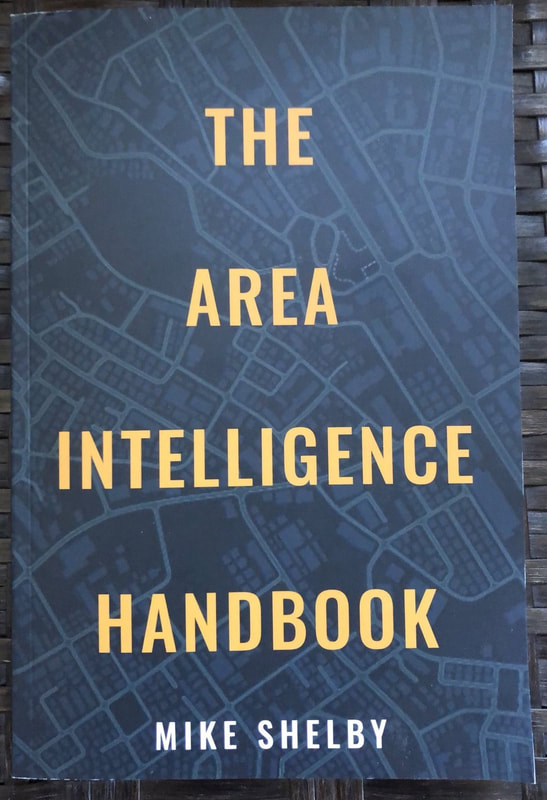
 RSS Feed
RSS Feed
